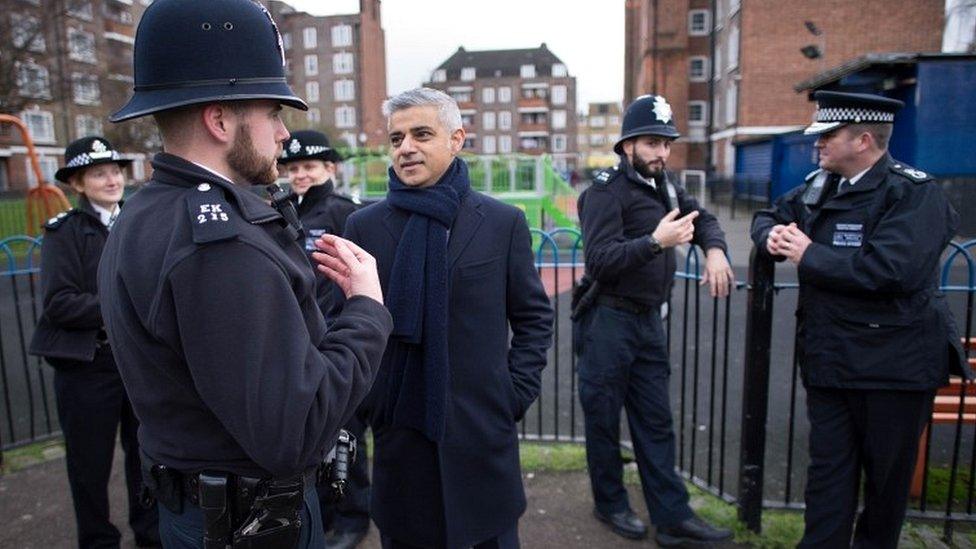'Why I quit my dream job as a police detective'
- Published
'Why I quit my dream job as a police detective'
The lack of police investigators in the UK is in crisis, according to a new report. Former detectives have told BBC's Victoria Derbyshire programme why they have quit their jobs.
Being a police officer was Angelina Dawson's dream job. It was "all I ever wanted to do", she says.
A police officer who won commendations, she was "dead chuffed" when she finally became a detective helping to solve some of London's most serious crimes.
"I loved the challenge of trying to work out what happened and putting the pieces of the puzzle together and getting the result, getting to court when people are being convicted of terrible things," she says.
"You really feel you've made a difference. It was worth all of those long hours."
'So pressurised'
However, in February - after 10 years as a Metropolitan Police officer and having become a detective - she decided to walk away from the police.
"I decided it's not good for me, it's not good for my health. It is so pressurised now. There just isn't enough of us," she says.
A shortage of detectives in the force meant some officers were having to investigate up to 20 crimes at once, she says.
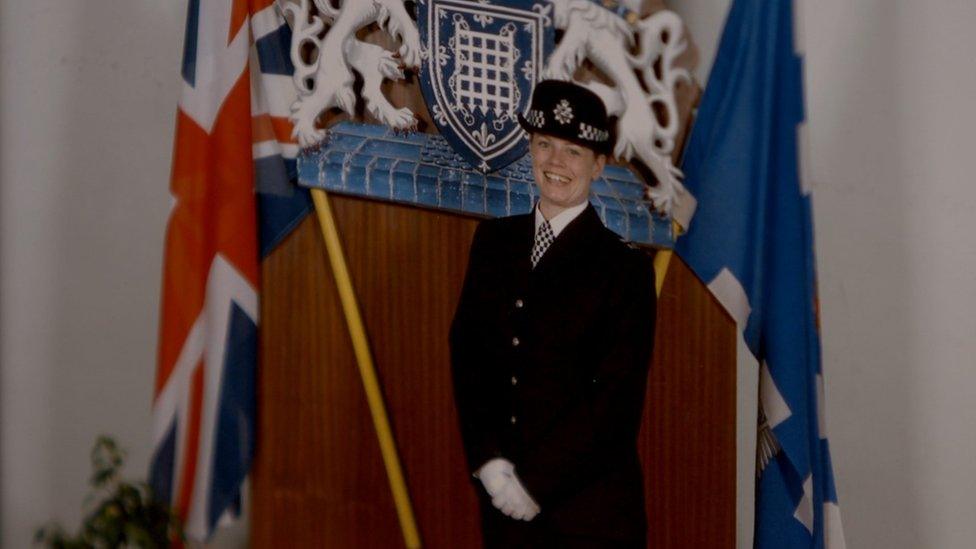
Angelina at her passing out parade, in 2007
"That is a massive workload, that's a minimum of 20 victims, a minimum of 20 suspects," she says. "There just isn't enough hours in a day to do everything."
Eventually, she says, the job began to harm her health, at which point she decided to leave it behind, albeit with a heavy heart.
"I would often wake up with headaches because I wasn't having enough sleep," she says.
"No matter how much you try to be organised at work and keep on top of everything, there was just more and more and more and there just wasn't enough of us to cope with what was coming in.
"I just ended up thinking I can't do this anymore. It made me feel a bit of a failure to be honest, that I couldn't stick at it. It made me sad."

'Insurmountable' workload
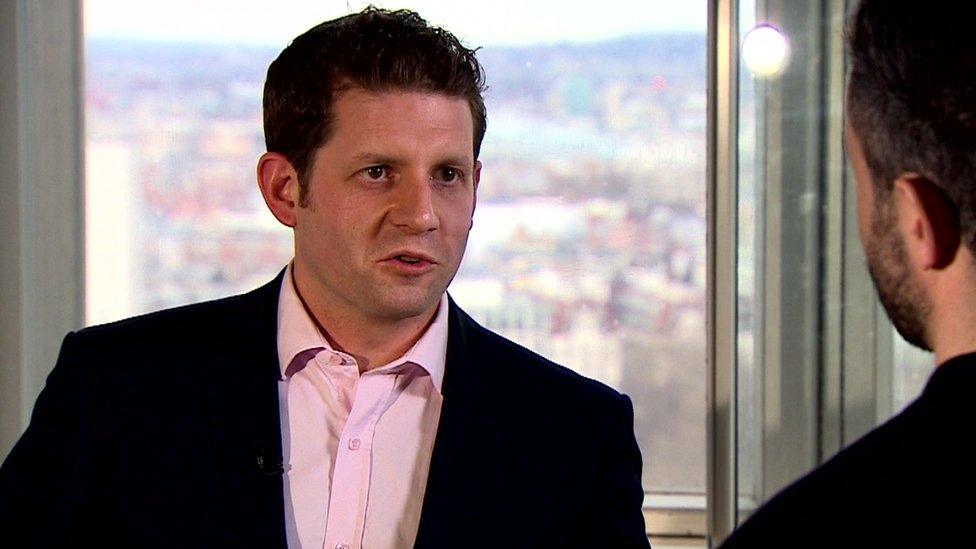
Simon Davison says he quit the police rather than move to another team for a promotion
Simon Davison, another former Met Police detective, says the workload in some CID units in the capital had become "insurmountable" before he left.
Last month, he resigned as a detective in the Met's "flying squad" - a unit that investigates serious organised crime.
He says he would have had to move away from his specialist unit in order to win a promotion.
However, he took the decision to quit the force altogether rather than transfer to one of London's 32 borough constabularies, where he says numbers have been "decimated".
'Mystique of CID'
"They've often got one detective sergeant and a trainee detective and that's it for the borough," he says.
"It only takes a couple of serious incidents and they are completely stretched.
"So I certainly noticed that going into the CID offices, that they just had very few numbers and you could sense the morale was quite down."
The seemingly glamorous lure of becoming a police detective and catching some of London's most fearsome criminals has also diminished, according to Mr Davison.
"The mystique of the CID has gone," he says.
"It used to be something that you aspired to but now I think something where you are either put or it is seen as the easy way out.
"I've seen departments with very few people.
"The experience has gone, and they just have an insurmountable work load."

The Her Majesty's Inspectorate of Constabulary (HMIC) report on police effectiveness describes the shortage of investigators - including detectives - as a "national crisis", calling for a UK-wide response.
"Some crimes are apparently being shelved without proper investigations taking place," the report says.
Inspectors say the Met Police is currently short of 700 detectives, and they are "very concerned" that too often officers without the right skills and experience are investigating crimes.
Recruitment drive
The Police Federation, which represents rank and file police officers, says the overall number of officers in London has not reduced.
Instead, the organisation says, cuts to civilian staff numbers have piled more pressure on officers, while there are also fewer people coming forward to join CID.
It is urging forces to make the role of a detective constable more appealing.
The Met said in a statement that "detective recruitment and retention is being addressed as a priority".
"In an organisation as large and complex as ours, ensuring we have the right people in the right roles to deal with an ever changing pattern of demand will always be very challenging, even more so in the current financial climate," the force said.
It added: "The Met has more officers than ever before taking the detective exam."
The Home Office said in a statement: "We have protected police funding through the 2015 Spending Review, and the public should be in no doubt that forces will continue to have the resources they need to cut crime and keep our communities safe."
Watch the Victoria Derbyshire programme on weekdays between 09:00 and 11:00 on BBC Two and the BBC News channel.
- Published21 July 2016
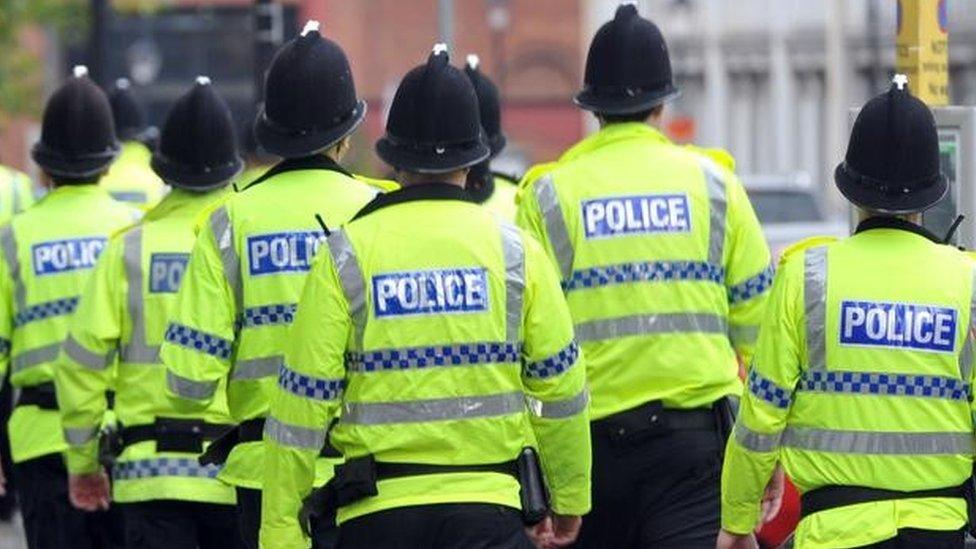
- Published27 February 2017
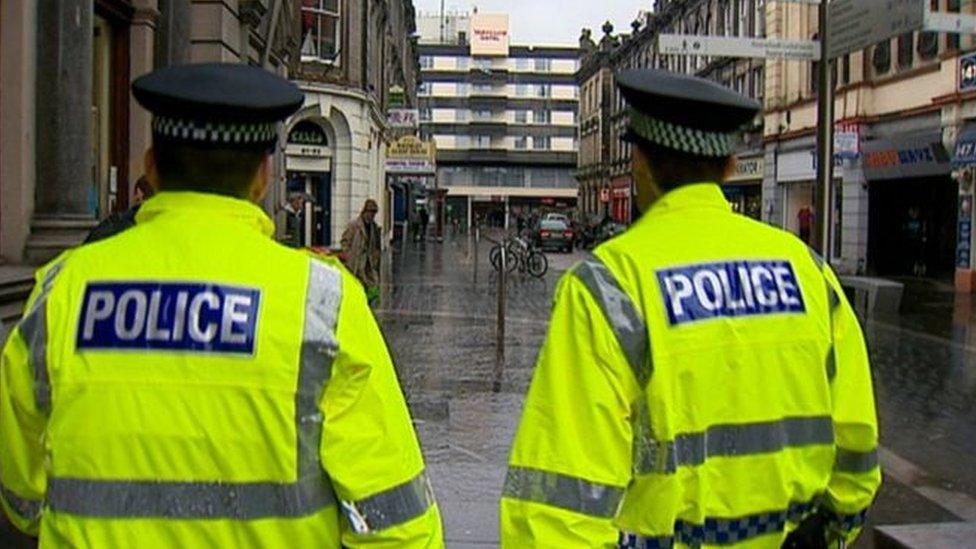
- Published16 January 2017
